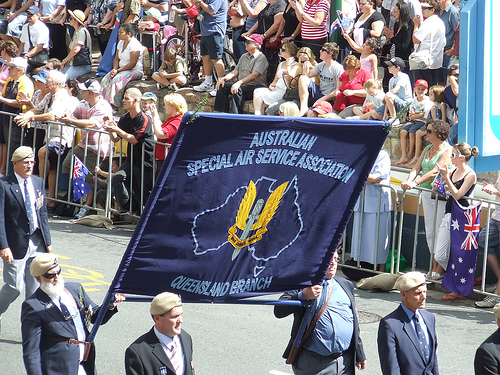The command-and-control arrangements for Australia’s elite Special Air Service Regiment (SASR) are being strengthened in the wake of the damning report into war crimes allegedly committed by its soldiers in Afghanistan.
Command of the SASR will be elevated to a full Colonel position, up from the previous Lieutenant Colonel position, in an effort to ensure there is “sufficient capacity and appropriate oversight for the complex missions SASR is expected to perform in the future”.
Defence minister Peter Dutton said in a statement released today (1 September) that the strengthening of command within the Perth-based special forces unit would prepare them for the demanding decade ahead.
“This is a critical reform to prepare the SASR for future conflict, getting them back to basics and focused on the challenges ahead,” Dutton stated.
SASR is an ‘incredible asset’ for Australia
“We have seen the skill and acts of bravery of the SAS in just the last week from the work that they have done in Afghanistan. Those men and women who serve in the SAS are an incredible asset to our country.”
Meanwhile, the Assistant Minister for Defence, Andrew Hastie, said the changes would see an increase in the qualifications and experience of those who oversee sensitive operations. Hastie is a former captain in the SASR and previously served in Afghanistan.
“These are important and historic changes that will ensure the regiment’s leadership is mature, experienced and better qualified to command sensitive strategic missions,” he said.
“This is a new era for the SASR: making it stronger and ready for the challenges ahead.
Change will help to modernise the regiment
“The 2020 Defence Strategic Update notes the importance of the Australia’s Special Operations capability in countering the grey-zone threats that Australia is likely to face in the future.”
Hastie added that the command reform would modernise the regiment for the demanding strategic requirements ahead.
SASR is part of the Australian Army’s Special Operations Command. This also includes the 1st and 2nd Commando Regiments, Special Operations Engineer Regiment, Special Operations Logistic Squadron and the Defence Special Operations Training and Education Centre.
In November last year, the Brereton report recommended 19 soldiers from the regiment be investigated by police for the “murder” of 39 Afghan prisoners and civilians.








 Explore top-rated compensation lawyers in Brisbane! Offering expert legal help for your claim. Your victory is our priority!
Explore top-rated compensation lawyers in Brisbane! Offering expert legal help for your claim. Your victory is our priority! 

 "
"


